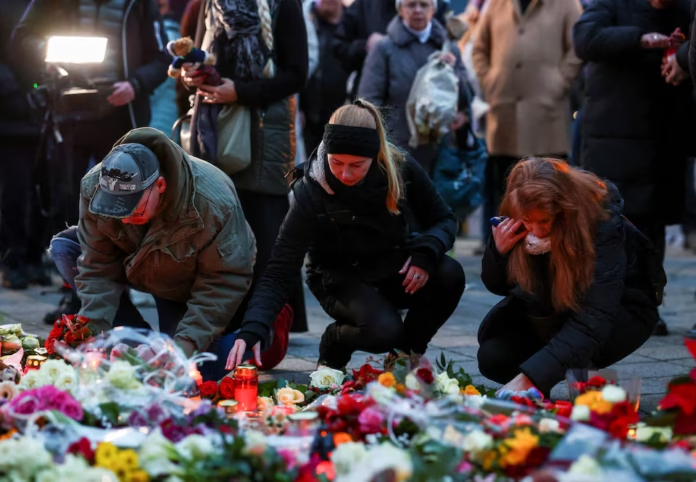Magdeburg, Germany, is reeling from a devastating attack at a Christmas market that claimed the lives of five people and left scores injured. The suspect, a 50-year-old psychiatrist from Saudi Arabia identified by German media as Taleb A., has been charged with five counts of murder and multiple counts of attempted murder and grievous bodily harm.
The attack, which occurred on Friday evening, sent shockwaves across the country. Authorities revealed that the suspect used emergency exit points to access the market grounds before accelerating through the crowds, injuring over 200 people in a brutal three-minute rampage. Among the victims were a nine-year-old boy and four women aged between 45 and 75. Approximately 40 others sustained serious or critical injuries.
A sea of flowers and tearful mourners gathered outside St. John’s Church in Magdeburg, close to the scene of the tragedy, to pay their respects. A sign bearing the word “Why?” symbolized the anguish of a grieving community. Chancellor Olaf Scholz attended a memorial service at the city’s cathedral, offering condolences to the victims’ families and pledging a thorough investigation.
German Interior Minister Nancy Faeser vowed to leave no stone unturned in piecing together the suspect’s motive, which remains unclear. “This perpetrator acted in an unbelievably cruel and brutal manner,” Faeser said. Despite his Saudi nationality, the suspect had a history of anti-Islamic rhetoric and had been critical of German authorities. Reports indicate that he had also publicly supported the far-right Alternative for Germany (AfD) party and U.S. billionaire Elon Musk on social media.
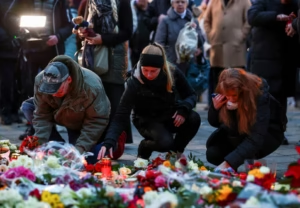
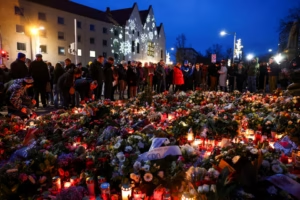
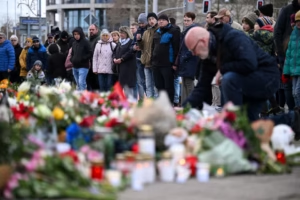
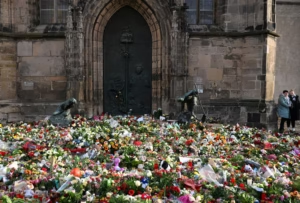
The incident has reignited tensions over immigration and security in Germany, with calls for stronger preventive measures. Authorities have acknowledged receiving warnings about the suspect from Saudi Arabia, raising questions about missed opportunities to prevent the attack. Political figures across the spectrum have criticized lapses in Germany’s security apparatus, urging better coordination between federal and state authorities.
In the aftermath of the attack, Magdeburg witnessed both mourning and political unrest. A far-right demonstration on Saturday drew over 2,000 participants, some of whom held banners calling for “remigration.” While the demonstration saw minor scuffles, it underscored the polarizing debates over immigration that continue to grip Germany.
The attack comes at a critical time for Germany, with national elections just weeks away. The far-right AfD party, which has strong support in former East Germany, has surged in opinion polls, further complicating the political landscape. Meanwhile, Chancellor Scholz’s Social Democrats face mounting pressure as they trail in national polls.
As Germany mourns the lives lost in Magdeburg, the focus now turns to uncovering the full story behind the attack and ensuring that such tragedies are prevented in the future. For the victims’ families and the nation as a whole, answers cannot come soon enough.


